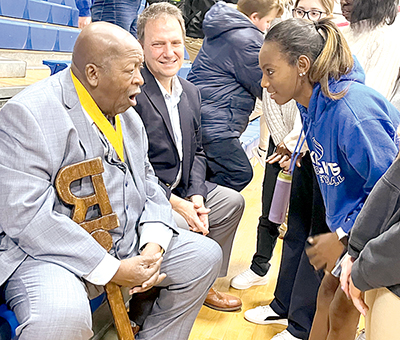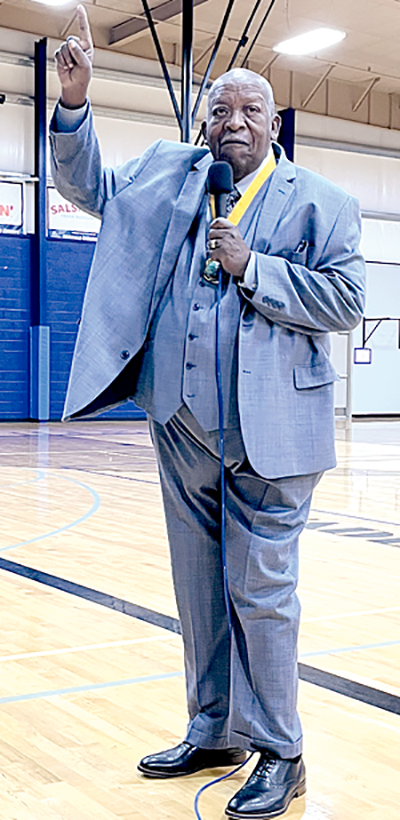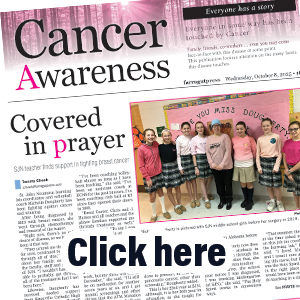Bond with Dr. King shared by his friend
Noted Civil Rights leader the Rev. Dr. Harold Middlebrook marched alongside Dr. Martin Luther King Jr. and learned much from one of the most important men of the 20th century.
But when Middlebrook spoke to Knoxville Christian School students Thursday, Feb. 16, the 80-year-old credited his grandmother for helping begin his journey of awareness and knowledge.
Speaking in the school’s Wade & Allan Houston Gymnasium as part of its Black History Month commemorations, Middlebrook, who lives in Knoxville, shared that while growing up in Memphis, he witnessed many things — one of the first was segregation.
“Memphis really was the cotton capital of the South. ... And every year, they held a Cotton Carnival and would crown a Cotton King and Cotton Queen, and they held a parade on Main Street,” he said. “But the only problem was, because of the color of our skin, we couldn’t attend the Cotton Carnival.”
In response, “some of the folks in our community started a celebration at the same time, called the Cotton Makers Jubilee, and we had a parade along Beale Street. But the strange thing, was those who attended the Main Street Celebration, wanted to attend the Beale Street celebration, because the bands on Main Street, marched traditionally but the bands on Beale Street, those bands, they got down, they would boogie.
“The problem, was, we grew up separated,” Middlebrook continued. “... I was told they were people who were better than me.”
“I could not go to the soda fountain, I could not go to the restaurants — but something happened to me when I was 5. My grandmother said, ‘You are somebody,’ and I grew up believing.
“I grew up poor,” he added. “We were a little lower than poor; but everybody on my street, was poor; so we didn’t really know we were poor. We just knew we were somebody.”
Middlebrook relayed how he graduated from high school with honors, and attended Morehouse College in Atlanta, where he said he “got into trouble — good trouble.”
It was the time of the sit-ins, across the country, where African Americans were drawing attention to the fact they were not allowed to be in most places where White people were allowed.
“The sit-ins in Memphis, started at the library,” he recalled. “The problem was, there was one library that was supposed to serve all the African Americans. If there was a book we wanted, we had to put in an order, and come in the next day, to get the book.
“We started sit-ins at the library because we wanted to learn.”
He said in Atlanta, “They started sit-ins at the lunch counter. Dr. Martin Luther King Jr. was invited to come and speak to us (at the college), about love, non-violence, and peace; he talked to us about Jesus, about Ghandi, about Thoreau — all non-violent leaders.
“Then somebody said to him, ‘Don’t just talk to us, show us how to do it.’”
Middlebrook shared how Dr. King joined them as they sat at the lunch counter in Rich’s Department store — and the group ended up in jail.
“So I ended up in the Atlanta jail, with one of the most famous men of that time, Martin Luther King Jr,” the Knoxville pastor added.
Middlebrook said after the jail stint, he traveled with Dr. King. “all over the nation, to Birmingham, Tuscaloosa and Selma, and was part of the team. When Dr. King was asked to come to Memphis, when the garbagemen were on strike … on April 4 (1968), I was standing on the parking lot with Dr. King, waiting to go to dinner, when he was killed.
“That experience has said to me, for the rest of my days, to work hard, so everybody understands, they are somebody.”
He told the students, “If you get it (in your head) nobody can take it from you.”




